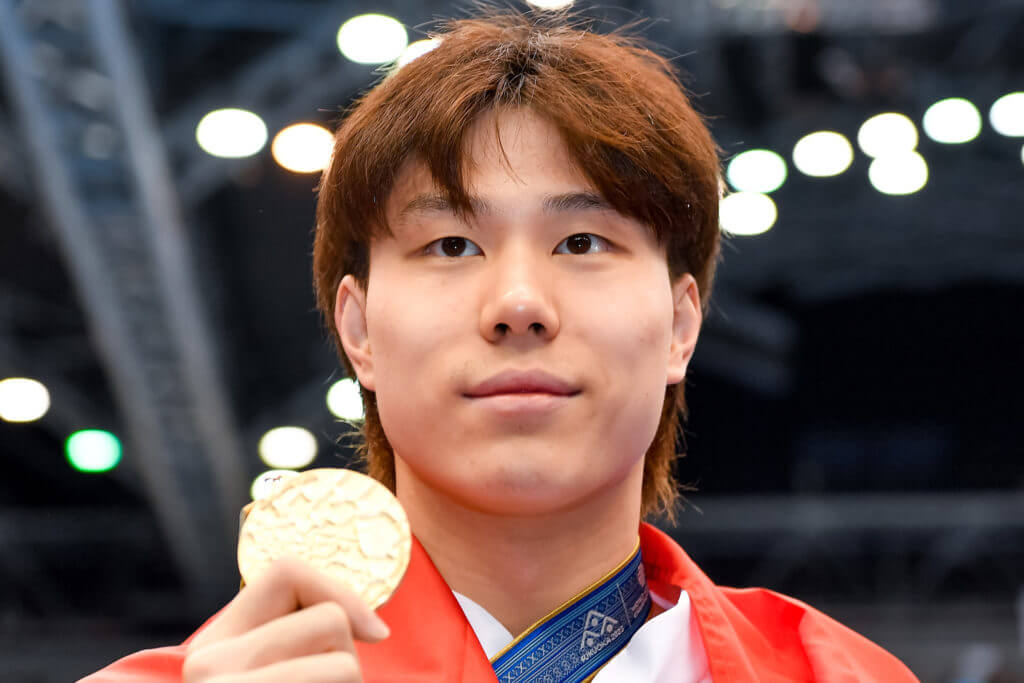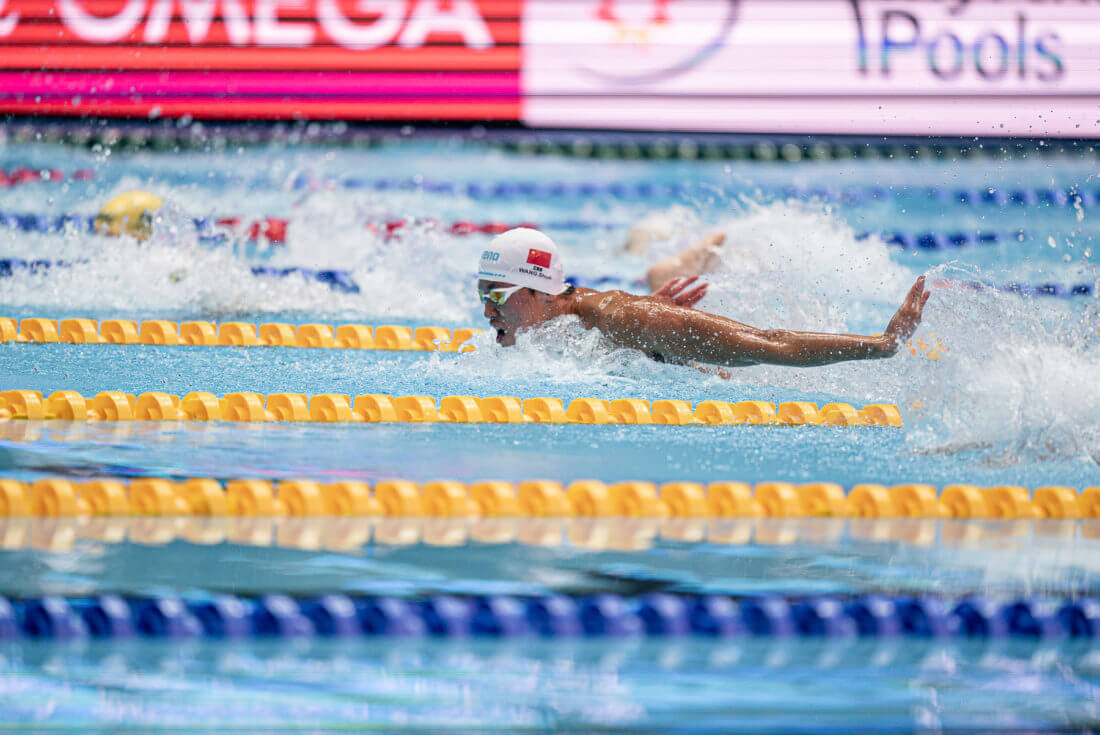China Now Among Elite Men’s Swimming Nations; Paris Will Be Definitive Test

China Now Among Elite Men’s Swimming Nations; Paris Will Be Definitive Test
In the not-so-recent past, China had never won an Olympic medal in men’s swimming. Zhang Lin was the first Chinese man to reach the podium when he won 400 freestyle silver at the 2008 Olympics held in Beijing, and in the three Olympics since, China has collected nine additional men’s medals. The now-disgraced Sun Yang won 400 and 1500 free gold in 2012 to go along with 200 free silver, and he led China to its first Olympic men’s relay medal in the 800 free relay.
Four years later, Sun added gold in the 200 free and silver over 400 meters while Xu Jiayu placed second in the 100 backstroke and Wang Shun won 200 IM bronze. And in Tokyo, Wang became the second Chinese male gold medalist with a come-from-behind win in the 200 IM. Not counted among the men’s medals medals was the mixed 400 medley relay silver that China won in 2021, with Xu and Yan Zibei contributing.
Not exactly a tradition of swimming dominance, not compared to the efforts of China’s women and their country’s profound success in diving. But entering the Olympic season, China has a dynamic group poised for a big impact in Paris. A brilliant showing at the World Championships in Fukuoka included six medals, highlighted by Qin Haiyang’s sweep of the breaststroke events. Sun Jiajun (50 breast) and Xu (50 back) were also individual medalists while Xu and Qin led China to a medley relay silver.
But the full might of this group was on display last week at a home Asian Games in Hangzhou. Qin replicated his finishes from Worlds, although he could not approach his own 200 breast world record or his 50 and 100-meter best times that rank second all-time to Adam Peaty. Teenager Pan Zhanle, who finished one hundredth off the 100 free podium at Worlds, swam a half-second faster in Hangzhou as he clocked 46.97, making him the fifth-fastest performer ever behind the esteemed quartet of David Popovici, Cesar Cielo, Alain Bernard and Caeleb Dressel.
Xu, now 28, was marvelous as he swept the backstroke events with his fastest times since 2017: 52.23 in the 100 back plus relay leadoffs of 52.05 and 51.91, all from a guy who went 52.64 in the individual Worlds final two months earlier. He swam times of 1:55.37 in the 200 back, which would have finished just off the podium in an event Xu skipped in Fukuoka, and 24.38 in the 50 back, ahead of his own bronze-medal time.

Wang Shun — Photo Courtesy: Becca Wyant
The most dramatic turnaround came from Wang, who was 11th at Worlds in the 200 IM at 1:57.97, nowhere near the 1:55.00 he swam to win Olympic gold in his previous trip to Japan two years earlier. At his continental championships? The result was a golden time of 1:54.62, which made him the third-fastest performer ever behind Ryan Lochte and Michael Phelps. Wang even beat the 1:54.82 that Leon Marchand clocked in his world-title-winning swim this year.
And we cannot forget the relays, where China finished on the verge of world records in both the men’s medley and mixed medley. The men’s group was the same as the foursome who won silver behind the United States at Worlds, but this group went two seconds faster in Hangzhou, largely thanks to Xu swimming 52.05 instead of a lackluster 53.39 in the Worlds final and Wang Changhao, handling seemingly China’s weak butterfly leg, improving from 51.56 to 50.68.
China also has a medal-contending men’s 400 free relay, with Pan entrenched at leadoff and Wang Haoyu having recorded anchor splits of 46.97 (at Worlds) and 47.55 (at Asian Games) this year. Add Pan’s best 100 freestyle time with the three best splits China got this year, and the resulting time is 3:10.06, one tenths ahead of the 3:10.16 a Kyle Chalmers-led Australian team swam to win the world title this year.
The pieces are assembled for a Chinese show in Paris. If Qin, Pan, Wang, Xu and the country’s supporting pieces are all clicking next July like they were at the Asian Games, China’s men will be one of the biggest success stories at La Défense Arena. A country with 10 men’s medals ever in the pool in line for six or seven in one Games, possibly even more. There’s still a chance that Sun returns to competition after the expiration of his four-year doping suspension, although he would be 32 years old for his return to international competition having not competed at that level in five years.
However, remember that China’s swim team is known for its year-to-year variability in performance. Qin had his big breakout in 2023, but he was not even competing at the 2022 World Championships, and one year before that, his only result from the Tokyo Olympics was a disqualification in the 200 breast. Between Wang’s stellar medley swims at the Olympics and then at this year’s Asian Games, he finished outside the top-eight at two different World Championships. Xu has been on the scene for a long time, but most of his best swims have come outside of major finals.
The Asian Games hold special significance for Chinese swimmers, but the wider sporting community judges Olympic success and results on the global level first and foremost. Can this team carry its momentum from a home meet of such consequence to the another held on the other side of the world? Yes, China sits in pole position in many events right now, but that’s in a meet when everything went nearly perfectly. The country’s track record of such a high success rate at world-level does not match its rate of coming through at a competition like the Asian Games.
That said, China’s men have never reached an Olympic year in such strong standing. If the country’s new and old stars come through when the lights come on in Paris, that could mark the official arrival of China as a men’s swimming world power.



